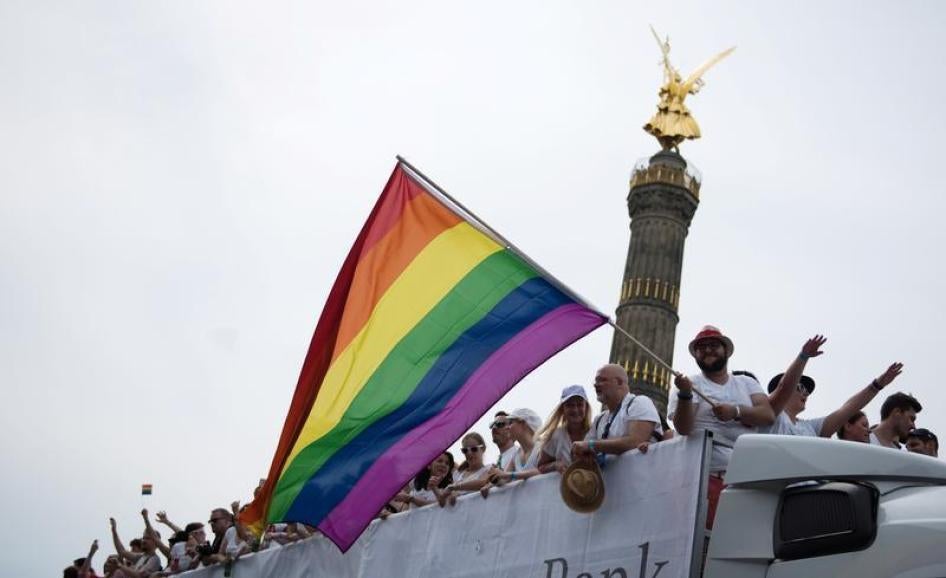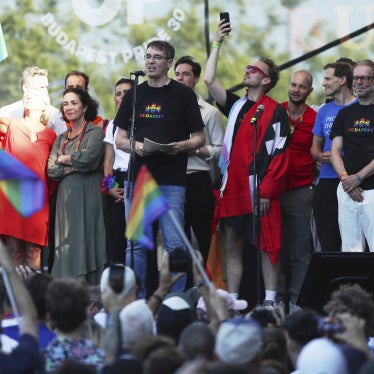Last week, Berlin held the Christopher Street Day Parade. Hundreds of thousands of people will demonstrated for equal rights and non-discrimination for LGBT people with a great parade, colourful floats, and music. As in previous years, German politicians were there to show their solidarity with the LGBT community. But they should also show solidarity by doing their work in parliament and adopting legislation to bring gay and lesbian people closer to equality.
Germany is one of the few countries in Western Europe where same-sex marriage is not legal. It is an outlier among neighbouring countries like Belgium, Denmark, France, Luxembourg, the Netherlands, and Sweden. In the Netherlands, the first marriages of gay and lesbian couples took place in 2001, more than 15 years ago.
A few years ago, a young woman, about twenty years old, asked at a party in Amsterdam ‘is it true there was a time when gay and lesbian couples could not get married in the Netherlands?’ When this was confirmed, she exclaimed: ‘But that’s discrimination!’ A whole generation of young people grew up with marriage equality and for them it is a non-issue. It is part of life as they know it. And from yearly government surveys we know that more than 80 % of the Dutch population supports marriage equality. Even members of parliament from the Dutch Christian Democratic party who voted against the legalisation have changed their minds and are now in favour.
But not Germany. Same-sex couples can enter into a registered partnership. This entails many of the same rights as a marriage between opposite-sex couples, but it is not the same, and it’s not equality. Chancellor Angela Merkel’s Christian Democratic Union (CDU) and the allied Christian Social Union (CSU), which operates only in Bavaria, oppose same-sex marriage, even though some of its own MPs have publicly supported marriage equality.
All the other political parties represented in the Bundestag support same-sex marriage. But since the CDU/CSU Group took power in 2005, they have blocked every attempt by their successive coalition partners to introduce marriage rights for same-sex couples.
The CDU/CSU Group does not allow to hold a free vote on marriage equality, so it would seem that a minority of the House has been able to keep the majority silent.
Adoption is another area in which Germany lags behind other Western European countries. Same-sex couples are not allowed to adopt a child together, although a complex set of rules on adoption by partners in a same-sex couple has emerged. Since 2005, Germany has allowed stepchild adoption by same-sex partners if one person already has a biological child. Then a 2013 constitutional court ruling held that if one partner in a same-sex relationship has adopted a child, the other partner has the right to become the adoptive mother or father of that child as well, in what are known as “successive adoptions.” This ruling became law in 2014. However, there is still no possibility for same-sex couples to adopt a child simultaneously if there is no biological relationship.
Politicians have not explained how any of these limitations on adoption or successive adoptions is in the best interest of the child. In fact, more than 70 peer-reviewed scholarly studies from around the world have concluded that children of gay or lesbian parents fare as well as other children. And for LGBT children, growing up in an environment of non-discrimination and equality serves their best interest.
In Western Europe, countries like Belgium, Denmark, France, Iceland, Luxembourg, Norway, the Netherlands, Portugal, Spain, Sweden, and the United Kingdom allow same-sex couples to adopt children together. Even its neighbour Austria, which is yet to grant marriage equality, has made joint adoption by same-sex couples legally possible.
So, while celebrating Christopher Street Day Parade, let’s keep in mind the homework Germany still needs to do.
Boris Dittrich is advocacy director in the LGBT rights program at Human Rights Watch, based in Berlin, and Alfonso Pantisano is spokesman for Enough is Enough, a German action network and newsgroup for the LGBT community, based in Berlin.








